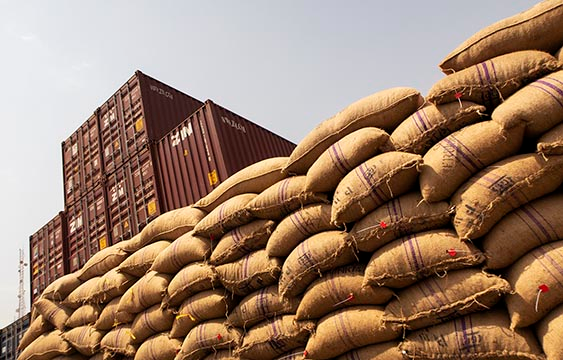Ghana’s government announced Thursday it’s pushing the farmgate cocoa price to GHS3,625 per 64-kilogram bag, marking the second adjustment in just two months as West African producers jostle for farmer loyalty in a tight market.
The new rate, which takes effect Friday, represents a 12.27% jump—roughly GHS400 more per bag—over the August price. Finance Minister Cassiel Ato Forson disclosed the revision through social media, emphasizing that cocoa remains central to Ghana’s economic stability and farmer welfare can’t be compromised.
What’s driving this? The move comes just a day after neighboring Ivory Coast, the world’s largest cocoa producer, bumped its own price by 27% to 2,800 CFA francs per kilogram. It’s a familiar pattern in the region—when one major producer adjusts prices, the other usually follows to prevent farmers from smuggling beans across borders where they’ll fetch better returns.
Forson stressed that margins and fees for other players in the cocoa value chain won’t change, which means farmers get the full benefit of this increase. That’s significant, because it shows the government’s trying to channel resources directly to those doing the heavy lifting in the fields rather than letting middlemen capture the gains.
The Ghana Cocoa Board (COCOBOD) isn’t stopping at price adjustments. According to the minister, the board will continue supplying fertilizers, insecticides, spraying machines, and other farming inputs at no cost to cocoa farmers nationwide. These interventions matter because they directly affect productivity—and productivity determines whether Ghana can maintain its position as the world’s second-largest cocoa exporter.
There’s also a longer-term play here. COCOBOD plans to launch a tertiary education scholarship program for farmers’ children starting in the 2026/27 academic year. It’s an acknowledgment that keeping young people interested in cocoa farming means offering more than just better crop prices—it requires pathways to broader opportunities.
The August price was originally set at GHS3,228.75 per bag, based on 70% of the average Free-on-Board price of cocoa at $7,200 per tonne. But international cocoa markets have been anything but stable lately, and exchange rate movements have added another layer of complexity to pricing decisions. When global futures hover above $10,000 per metric ton, as they’ve done periodically this year, farmers naturally expect their share to reflect that reality.
This latest adjustment suggests the government’s responding to both external market signals and internal political pressures. Cocoa-growing regions wield considerable influence in Ghana’s politics, and with Ivory Coast offering more attractive terms just across the border, Accra couldn’t afford to sit still.
Still, questions remain about sustainability. Can Ghana maintain these higher prices if global markets soften? And will the promised productivity gains from free inputs actually materialize, or will farmers continue battling the same old challenges—aging trees, pests, and unpredictable weather patterns?
For now, though, farmers in cocoa-growing communities will likely welcome the news. An extra GHS400 per bag might not sound transformative, but for households producing dozens or hundreds of bags per season, it adds up quickly. Whether this translates into renewed investment in farms or simply helps families catch up on expenses remains to be seen.
The competitive dynamic between Ghana and Ivory Coast isn’t going away anytime soon. Both countries depend heavily on cocoa exports, and both face pressure to keep farmers producing domestically rather than watching their crops disappear across porous borders. Thursday’s announcement suggests Ghana’s willing to stay in that game—at least for now.
Source: newsghana.com.gh











